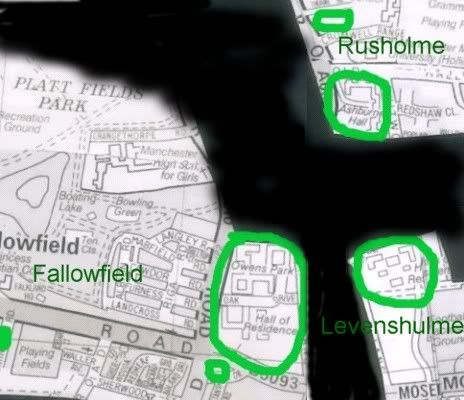Until today, I had no idea that I could vote in this country. I mean, yeah, I knew I could vote in local elections and European elections - all citizens of the EU have that right when resident in another EU country - but national elections are a different matter altogether.
However, it appears that citizens of Commonwealth countries, resident in the United Kingdom, are also eligible to vote here. And what, you might ask, does that have to do with the price of fish? Ireland's not in the Commonwealth, after all - she left back in 1949. Quite true, but it seems that that same year the UK government passed the Ireland Act, under the terms of which Irish citizens resident in the UK are not to be treated as aliens. British citizens - or subjects, rather - have, since 1985, been similarly allowed to vote in Irish elections.
Well.
The local M.P. is Gerald Kaufman, one time shadow minister for foreign affairs, and a man of whom Tony Blair is apparently deeply suspicious. That's commendation enough for me, but the clincher is his having been Vice-President of the Chesterton Society.
Does this win him my vote? Perhaps. Mind you, it looks as though Gerald is in no danger anyway: he got 62.8 per cent of the vote here last time, with his closest challenger, the Lib Dem's Jackie Pearcey, getting just 21.3 per cent.
The constituency map startled me, when I looked at it. You know the way that the hall of residence where I live is part of a much larger campus, where 3,500 students live? Well, it seems that despite all the attempts to centralise the campus, assuring us all that we're one campus, it looks as though the campus is split between three electoral wards - in other words that although we all live on the same Campus, we have different Counsellors to represent us. The northern halls are part of Rusholme, and the eastern hall falls within the boundaries of the Levenshulme ward, while the dilapidates halls in the centre are indeed part of Fallowfield.
Ironic, eh?
First the Pope, then the Prince...
I see Prince Rainier has died. A curious coincidence that, that the ruler of Europe's second smallest state should have died within a few days of the ruler of Europe's smallest. The flags in Monaco are at half mast, but then, they were already. They seem to be everywhere, though there's quibbling in France, understandably.
There've been a couple of articles in the Guardian over the last couple of days musing on the most high-profile British responses to the death of the Holy Father. Tony Blair, the Archbishop of Canterbury, and the Prince of Wales will be going to Rome for the funeral on Friday - it's odd enough that the Queen's Prime Minister and the head of the Anglican Communion should attend the Pope's funeral, but the heir to the throne is having to postpone his wedding to do so. And of course, that's pushing the Grand National a little later, but that's perhaps not quite so significant.
None of this may strike you as out of the ordinary. After all, whether you liked him or not, there's no denying that John Paul II was one of the most significant figures of the post-war period, and it's only right that people should pay their respects.
The thing is, plenty of people still see Britain as being, in essence, a Protestant country with a distinctly Protestant ethos - and I don't just mean nutters like Adrian Hilton. Granted, in England nowadays fewer Anglicans practise weekly worship than do the Catholics they supposedly outnumber, or even Muslims, but the fact remains: the United Kingdom is, on paper, a Protestant kingdom.
When, almost five centuries ago, Henry VIII defected from the Faith of Europe he tore England from the family where for so long she had been an active and valued member. England's destiny for long afterwards was to deny her European identity, and, ruling her island neighbours, to carve out a separate role in the world, with an overseas Empire and an overseas religion. The Twentieth Century saw her first dismantling her Empire and then steadily abandoning her religion.
Ir remains to be seen how she replaces them, but perhaps the funeral of the Slavic Pope, who did more than almost anyone to reunite a shattered continent, will see her returning to her European family.
We can hope, anyway.


No comments:
Post a Comment